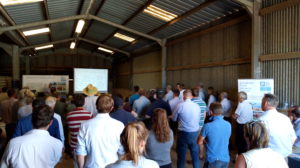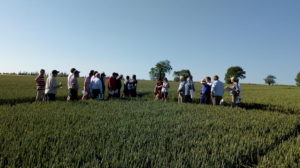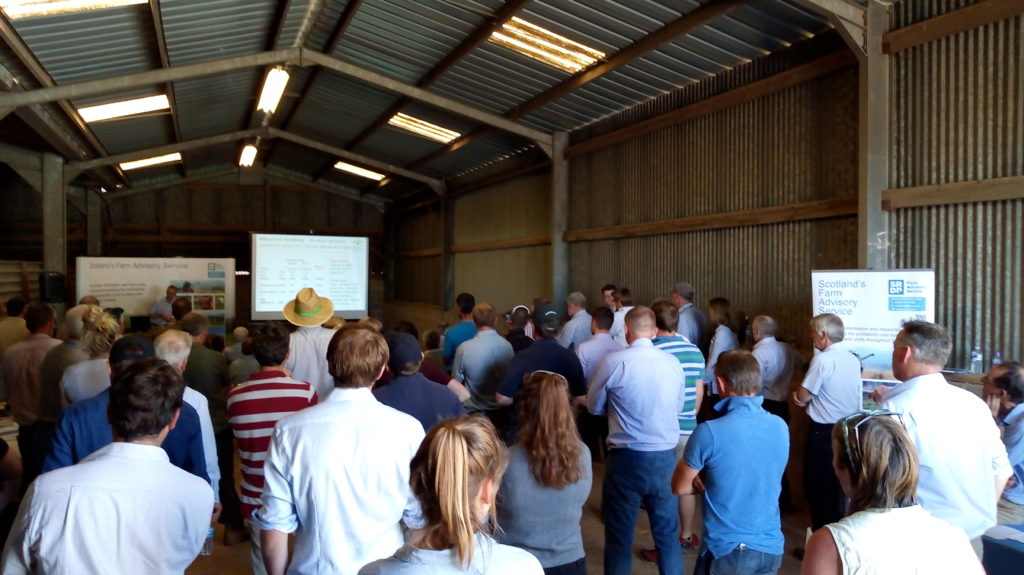Cereal Trials Open Evening, East Lothian – Post-event summary
28 June 2018The East Lothian Cereal Trials Open Evening was held in glorious sunshine recently at Cauldshiel. 
The theme of the event this year was on making the most of home markets for malting and distilling. After a welcome and introduction from Prof Fiona Burnett of Scotland’s Rural College, Julian Bell of SAC Consulting gave an overview of the world grain market. Julian explained that global stocks could be at a 5 year low, giving cause for optimism for producers. James Brosnan from the Scottish Whisky Research Institute then spoke about opportunities for wheat distilling and what distillers are looking for from growers. Attendees then made their way to the field to look at the trial plots of winter wheat and spring barley. Steve Hoad of Scotland’s Rural College talked through how some of the current and new wheat varieties have performed over the season. Steve focussed on the distilling varieties, highlighting Motown as a good choice given its strong agronomic qualities. Fiona Burnett discussed the fungicide trials in wheat, explaining how different strategies have fared in what has been a year of relatively low disease pressure. Andy Evans of Scotland’s Rural College then spoke about the loss of neonicotinoid seed treatments and how this would affect growers in dealing with pest pressure going forward. 
Donald Dunbar of SAC Consulting talked attendees through the spring barley varieties which again were showing very little in the way of disease. Moira Gallagher of SAC Consulting highlighted the various green cover mix plots at Cauldshiel and explained the benefits provided by each one. Finally, Neil Havis and Ian Bingham of Scotland’s Rural College discussed some of the other trial work being undertaken in the barley plots. Neil spoke about IPM and the promising effect of elicitors in crop protection trials. He also stressed that Ramularia control can now only be achieved through Chlorothalonil and demonstrated this with samples of winter barley from the Boghall trial site. Ian discussed work being carried out on Nitrogen applications in spring barley, looking at the effect of different timings and application rates. He also explained the results of trial work last year on spray timings in spring barley. These showed that the crop gave very little yield response to a T1 spray + T2 spray, compared to a T2 spray on its own. Ian explained though that more work is needed to investigate this in a year with much higher disease pressure.
More information on the evening and the varieties can be found from the handouts below.
- Cauldshiel Open Day Hand Out – 28th June 2018
- Topics: Crops and Soils
- Take-All Root Disease
- Topics: Crops and Soils
- Cauldshiel powerpoint – Spring Barley Varieties
Sign up to the FAS newsletter
Receive updates on news, events and publications from Scotland’s Farm Advisory Service

